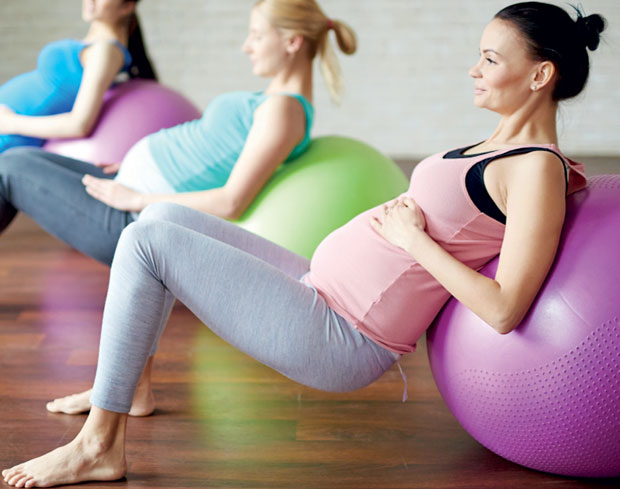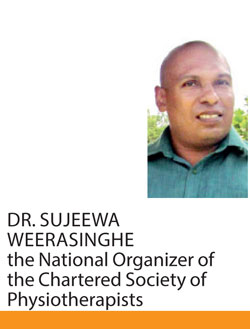18 Aug 2017 - {{hitsCtrl.values.hits}}

 Eighty percent of women will experience back pain at some point during pregnancy. The severity of this pain during pregnancy ranges from mild discomfort after standing for long periods of time to debilitating pain that interferes with daily life. Although back pain during pregnancy can be a sign of a more serious condition, including labour, in most cases, it is the result of changes happening within the body. You’ve got lots of company! Most pregnant women experience back pain, usually starting in the second half of pregnancy.
Eighty percent of women will experience back pain at some point during pregnancy. The severity of this pain during pregnancy ranges from mild discomfort after standing for long periods of time to debilitating pain that interferes with daily life. Although back pain during pregnancy can be a sign of a more serious condition, including labour, in most cases, it is the result of changes happening within the body. You’ve got lots of company! Most pregnant women experience back pain, usually starting in the second half of pregnancy.
You should know that there are things you can do to minimize your back pain. Dr. Sujeewa Weerasinghe the National Organizer of the Chartered Society of Physiotherapist tells us what really helps!
Causes
There are a number of reasons for back pain in pregnancy.
Here are the main ones.
Ligament softening hormones cause your joints to move more than usual, causing extra strain on your back and hips.
Postural problems caused by your growing uterus and stretched abdominal muscles that restrict you from being able to maintain proper alignment.

Your baby’s weight causes your lower back to sway as your center of gravity moves forward making back muscles short, tight, and painful. The position of your baby (particularly towards the end of pregnancy) can compress nerves and cause back pain. Due to your baby’s ever increasing weight, back pain is often worse in the later stages of pregnancy as your bub grows heavier. Pregnancy back pain typically happens where the pelvis meets your spine, at the sacroiliac joint.
There are many possible reasons why it happens.
Here are some of the more likely causes:
Weight gain- During a healthy pregnancy, women typically gain between 25 and 35 pounds. The spine has to support that weight. That can cause lower back pain. The weight of the growing baby and uterus also puts pressure on the blood vessels and nerves in the pelvis and back.
Posture changes-Pregnancy shifts your center of gravity. As a result, you may gradually-even without noticing- begin to adjust your posture and the way you move. This may result in back pain or strain.
Hormone changes-During pregnancy, your body makes a hormone called relaxing that allows ligaments in the pelvic area to relax and the joints to loosen in preparation for the birth process. The same hormone can cause ligaments that support the spine to loosen, leading to instability and pain.
Muscle separation-As the uterus expands, two parallel sheets of muscles (the rectal abdominis muscles), which run from the rib cage to the pubic bone, may separate along the center seam. This separation may worsen back pain.
Stress- Emotional stress can cause muscle tension in the back, which may be felt as back pain or back spasms. You may find that you experience an increase in back pain during stressful periods of your pregnancy.
Treatment
More good news-Unless you had chronic backaches before you got pregnant, your pain will likely ease gradually before you give birth.
Meanwhile, there are many things you can do to treat low back pain or make it rarer and milder.
Exercise-Regular exercise strengthens muscles and boosts flexibility. That can ease the stress on your spine. Safe exercises recommended for most pregnant women include walking, swimming, and stationary cycling. Your doctor or physical therapist can recommend exercises to strengthen your back and abdomen.
Heat and cold-Applying heat and cold to your back may help. If your health care provider agrees, start by putting cold compresses (such as a a bag of ice or frozen vegetables wrapped in a towel) on the painful area for up to 20 minutes several times a day. After two or three days, switch to heat. Put a heating pad or hot water bottle on the painful area. Be careful not to apply heat to your abdomen during pregnancy.
Improve your posture- Slouching strains your spine. So using proper posture when working, sitting, or sleeping is a good move. For example, sleeping on your side with a pillow between the knees will take stress off your back. When sitting at a desk, place a rolled-up towel behind your back for support. Rest your feet on a stack of books or stool and sit up straight, with your shoulders back. Wearing a support belt may also help.
Factors that influence back pain
The spine is vulnerable due to the following factors during pregnancy:
Hormone production during pregnancy makes joints less stable (to allow the pelvis to spread as the baby grows)
Typical weight gain of 25-35 pounds during pregnancy, with the majority or extra weight distributed around the abdomen
Increase in postural strain as the body compensates for changes in the pregnant woman’s center of gravity
Pain busters
Although back pain is common in pregnancy, there are things you can do to get some relief. Here are easy back ache busters to ease the tension on your spine.
Deep heat
A simple massage can be heavenly when you’re suffering from pregnancy back ache torture. Ask your partner to rub your back or indulge in a pregnancy massage. Pregnancy massage is specially designed to alleviate swelling and reduce stress on weight bearing joints. Heat packs can also alleviate back pain by improving blood flow to your aching muscles which encourages them to relax. Simply apply the heat pack for approximately 15-20 minutes to your sore back as often as every 3-4 hours. Be careful not to overheat your body though - heat packs shouldn’t be hot but feel comfortably warm against your body.
Posture pointers
It’s really important that you maintain good posture during pregnancy as standing tall will take the pressure off your already strained back.
Try these posture pointers to get into line:
Always stand up tall and straight with your shoulders back - as if trying to get your head to touch the ceiling.
Straighten your upper back, so that your ear, shoulder and hip are aligned. Tuck your pelvis under using the pelvic tilt.
Contract your abdominal muscles and buttocks to act as a natural “corset” for your lower back.
When sitting make sure your back is supported by a small pillow in the curve of your spine to encourage you to sit up straight.
When sitting don’t cross your legs as this decreases circulation.
Don’t wear high heels!
Sleep easy
23 Dec 2024 2 hours ago
23 Dec 2024 3 hours ago
23 Dec 2024 6 hours ago
23 Dec 2024 7 hours ago